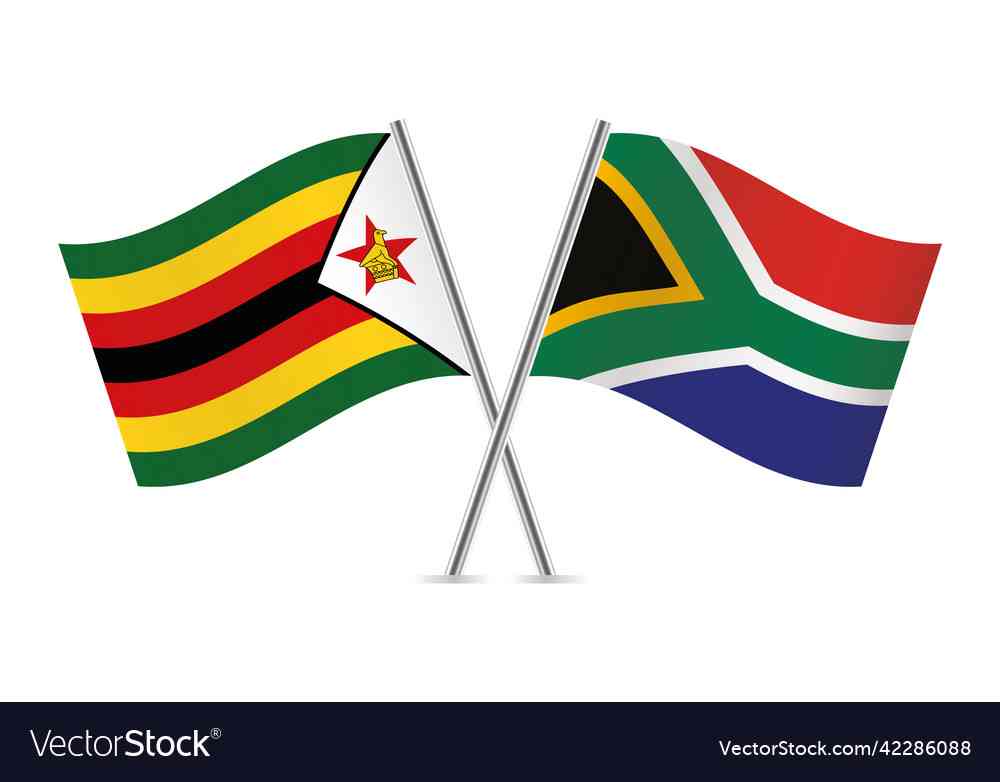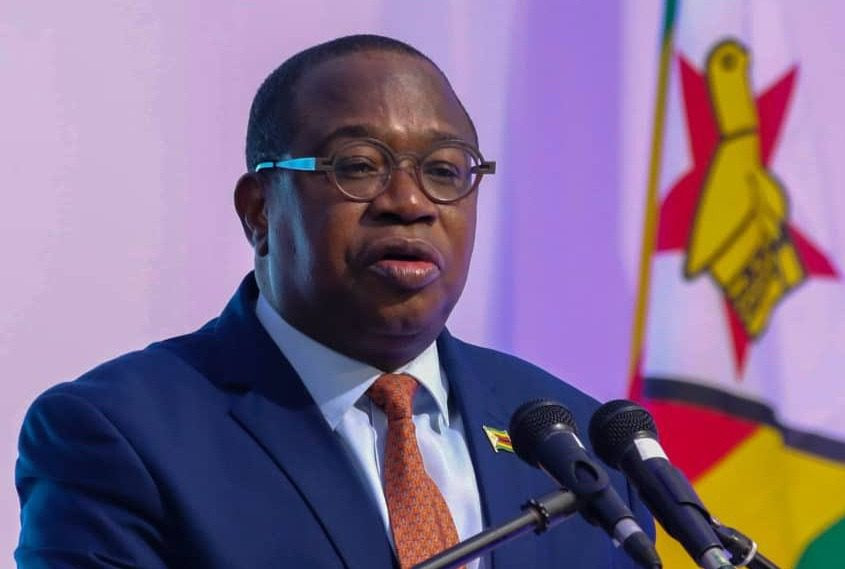
IN Hammanskraal, a small town situated close to the South African capital, Pretoria, at least 23 people died following a cholera outbreak last month.
Health authorities have not identified the source of the outbreak, but the town’s residents have lacked access to safe and clean water for years, a situation that is extremely common across the country amid catastrophic service delivery failures in countless badly managed and dysfunctional municipalities.
On May 30, auditor-general Tsakani Maluleke described the deaths as a “harsh reminder” of leadership failure and ”continued neglect” in Africa’s second wealthiest nation.
These days, South Africa is also reeling from long and daily power cuts, extensive corruption in public entities, and a 32,9% unemployment rate.
Speaking to the BBC in May, the secretary-general of the ruling African National Congress (ANC) party, Fikile Mbalula, acknowledged the enormous magnitude of his country’s problems.
“If certain things are not resolved, we will become a failed State, but we are not journeying towards that direction,” he said.
Strange as it might seem now, there was a time when South Africa was the pride of southern Africa and a distinguished symbol of post-colonial development.
For a long time, it carried the hopes of millions of southern Africans, who had come to expect nothing but failure from countries ruled by former liberation parties.
- Mavhunga puts DeMbare into Chibuku quarterfinals
- Bulls to charge into Zimbabwe gold stocks
- Ndiraya concerned as goals dry up
- Letters: How solar power is transforming African farms
Keep Reading
Throughout the tenure of former President Thabo Mbeki, between 1999 and 2008, South Africa’s gross domestic product growth averaged 4,1%, the highest the country had seen since 1980. Public confidence in his government’s policies and economic performance was also fairly high.
Sure, Mbeki’s presidency wasn’t perfect by any means — his HIV/Aids denialism, for one, caused much suffering for many of his compatriots and damaged South Africa’s progressive image on the international stage.
But, for the most part, the country was functioning, and its socio-economic agenda was bearing fruit. Back then, no one thought South Africa could become a failing or failed State in merely 15 years’ time.
There was also an expectation — at home and abroad — that, under the progressive leadership of the ANC, South Africa would support the development of democracy in southern Africa. Mbeki had been underlining this commitment since before the beginning of his presidency.
South Africa’s current President and ANC leader Cyril Ramaphosa, reaffirmed the “importance of consolidating democracy and consolidating good governance across Africa” at Africa Day celebrations in Gauteng on May 25.
Yet, the Ramaphosa administration hasn’t done much to promote democracy and human rights in South Africa’s immediate neighbourhood, either through its own diplomatic initiatives, or via the Southern African Development Community (Sadc), the regional intergovernmental organisation.
The State of Zimbabwe, its northern neighbour, is a case in point. Like South Africa, it, too, is at a crossroads.
President Emmerson Mnangagwa, who won a hotly disputed presidential election in August 2018, has failed to turn around Zimbabwe’s economy, fix an ailing health sector and tackle corruption.
In April, a four-part investigation by Al Jazeera implicated Mnangagwa and his wife, Auxillia and Uebert Angel, Zimbabwe’s ambassador-at-large to Europe, in a sophisticated money laundering and gold smuggling scheme.
An equally disturbing hallmark of Mnangagwa’s presidency is its propensity to crack down on dissent and commit severe human rights abuses.
The repressive and trigger-happy government in Harare ordered violent clampdowns on demonstrations in 2018 and 2019 that killed scores of unarmed civilians.
Be that as it may, Harare faced no condemnation from the supposed regional heavyweight, South Africa, or formal sanction from Sadc.
South Africa, it seems, is willing to turn a blind eye to systemic repression and democratic regression in its backyard, despite claiming that it still seeks to “consolidate democracy in Africa”.
In April, the Sadc Electoral Advisory Council (SEAC), led by Justice Ticheme Dlamini from Eswatini, undertook a pre-election assessment visit to Zimbabwe, as it prepares to observe the country’s August 23 general elections.
After meeting the leader of the main opposition Citizens Coalition for Change (CCC) party, Nelson Chamisa, on April 14, Dlamini was remarkably candid about the violent and illiberal tactics employed by the ruling Zanu PF party.
Speaking with reporters, he said Zimbabwe has repeatedly violated Sadc’s “electoral principles and guidelines” and the regional body wouldn’t “sit down and watch this continuing”.
At the same time, nonetheless, he stated that SEAC’s pre-election report wouldn’t address these electoral irregularities, and only the “senior structures” of Sadc could deal with such matters.
Five days later, however, following discussions with Sadc ambassadors accredited to Harare, Dlamini claimed Zimbabwe was “geared and ready for the elections”.
Contrary to this misleading and politically expedient assertion, Zimbabwe does not appear prepared to hold a credible election.
Mnangagwa’s regime has shoved all democratic pretensions aside ahead of the August 23 polls and effectively banned the opposition from organising party meetings and freely canvassing support.
On January 14, for instance, police allegedly assaulted and subsequently arrested 25 members of the CCC for attending an “unauthorised” meeting in Budiriro, Harare.
Later, in February, CCC was denied permission to hold rallies in Chiwanzamarara, Chikomba, Chiendambuya and rural Mutare.
The police have, in fact, banned at least 63 CCC campaign meetings this year on unclear and spurious grounds.
Meanwhile, on April 28, Jacob Ngarivhume, the leader of opposition party Transform Zimbabwe was sentenced to four years in prison for inciting public violence over a 2020 protest.
His only “crime”, if any, was to call for a countrywide protest against endemic State corruption and extreme economic mismanagement in July 2020.
By impeding people’s right to freedom of speech, association and assembly, Mnangagwa has clearly upped the ante in the fight to win the presidential election.
On May 30, the Zanu PF-dominated Parliament passed the Criminal Law (Codification and Reform) Amendment Bill, commonly known as the “Patriot Bill”, which has a clause that criminalises dissent.
Under the law, citizens found to be unpatriotic, by “wilfully damaging the sovereignty and national interest of Zimbabwe”, face up to 20 years in prison.
Judging by Zimbabwe’s atrocious human rights record, there’s every indication, sadly, that the government will use the controversial clause to target its critics, journalists, human rights advocates and opposition leaders.
To compound matters, the voters roll is reportedly in “shambles”.
It is no surprise, then, that opposition leaders have begun to question the authenticity of the upcoming polls.
Of course, it’s impossible to carry out a free, fair and transparent election in a largely oppressive and opaque environment.
Yet, still, as an impending electoral disaster and political instability loom in Zimbabwe, South Africa remains conspicuously — and most regrettably — silent.
It would help if South Africa endeavoured to encourage a significantly democratic environment and electoral process in Zimbabwe.
The large and endless flow of people attempting to migrate from Zimbabwe to a “failing” South Africa underscores the overwhelming need for peaceful and credible elections there.
It is most disappointing to see both South Africa and Zimbabwe become microcosms of extreme corruption, financial mismanagement and post-colonial failure.
To this end, ANC must reassess and rectify its wide-ranging shortcomings. Similarly, it must also meet its foreign policy obligations to the people of southern Africa. It should not, under any circumstances, help enable a tyrannical government in Zimbabwe.
Words alone cannot influence or achieve positive democratic outcomes in Zimbabwe or elsewhere in southern Africa. South Africa must monitor the 2023 general elections in Zimbabwe closely and act firmly on any undemocratic practices and outcomes.










